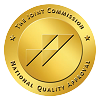There’s a lot of talk out there about Resilience these days due to the effects of the pandemic on so many. However, resilience has been considered an important skill set for healthcare workers for several years. Burnout (defined as mental and physical exhaustion from chronic workplace stress) is an ongoing occupational hazard in healthcare, which harms the healthcare system, patients, and healthcare workers. The pandemic exacerbated that.
The CDC has identified several symptoms of healthcare burnout including:
- Feeling irritation, anger, or denial
- Feeling uncertain, nervous, or anxious
- Feeling helpless or powerless
- Lacking motivation
- Feeling tire or, overwhelmed
- Feeling sad or depressed
- Having trouble sleeping
- Having trouble concentrating
A Washington Post survey published this past April of 1,327 front-line health care workers in the United States during the COVID-19 pandemic showed:
- 55% of front-line health care workers reported burnout
- The highest rate (69%) was among those ages 18 to 29
- That same age group also reported the highest negative impact of the pandemic on their mental health (75%)
- All healthcare workers (62%) reported some mental health repercussions.
What is Resilience?
Resilience is the ability to adapt to difficult situations so that a person can bounce back to a state of well-being . When faced with stress or trauma, a person still experiences anger, grief and pain, but they’re able to keep functioning — both physically and psychologically. Resilience helps to protect from some mental health conditions such as depression and anxiety.
For healthcare workers in particular, being able to bounce back with resilience equates to better patient care and outcomes as they will be more alert, positive, and are able to communicate more clearly than if they were more stressed out. Effectively practising resilience can also help healthcare workers advance their careers. People who increase their resilience usually feel naturally energized, motivated, and capable of taking on more responsibilities. Those who are resilient in nature will generally have a higher sense of self-awareness, persistence, and the energy to sustain their mind and body. Resilience is also thought of as part of the foundation to becoming emotionally intelligent, as it requires emotional flexibility, adaptability, a positive outlook and being able to reach out to others for open communication.
Steps for building Resilience
There are many strategies to help healthcare workers improve their sense of resilience:
On The Job
- Reminding one-self of their strengths. In the face of adversity, many people’s self-esteem can face significant challenges. Replace negative thoughts about a problem with positive ones is important to maintaining a sense of self-worth.
- Flexibility. Sudden changes can seem very disruptive. Wherever possible, seek positives in the change.
- Develop positive thinking and optimism. A ‘can-do’ attitude helps see problems clearly and act appropriately.
- Take action to solve problems as soon as they are encountered. The problem probably isn’t going to go away, and the longer it is left unresolved, the more stress people feel.
- Set reasonable goals to deal with problems. Break problem-solving down into small manageable steps. Experiment with, and use, a range of problem-solving strategies.
Personal Actions
Healthcare is a demanding profession and it is critical that people care for themselves.
- Increase a personal sense of control by keeping a consistent daily routine when possible.
- Try to get adequate sleep.
- Make time to eat healthy meals.
- Take breaks during your shift to rest, stretch, and recuperate.
- When away from work, get exercise. Spend time outdoors either being physically activity or relaxing. Do things you enjoy during non-work hours.
- Engage in mindfulness techniques such as breathing exercises and meditation.
Social Actions
- Maintain a supportive social network of healthcare colleagues. Sharing problems and using combined experiences to help solve.
- Reach out to positive family and friends during breaks
- Take breaks from watching, reading, or listening to news stories, including social media.
Additional Resources
Below is a curated list of resources healthcare workers can use:
- Tips for Taking Care of Yourself (Healthcare Providers and Emergency Responders), a collection of resources from the CDC
- Helpful handouts from the Center for the Study of Traumatic Stress
- Doing What Matters in Times of Stress, an illustrated guide and audio exercises from the WHO
- Resilience in Stressful Times and Connecting During Times of Trauma, a webinar from the American Academy of Pediatrics
- Resiliency Tools for Health Care Professionals, a collection of tools from the Duke Center for Healthcare Safety and Quality
- 59 Mental Health Resources for Health Care Providers, curated resources from Nursing License Map
- The Well-Being Initiative: Free Tools to Support the Mental Health and Resilience of All Nurses, from the American Nurses Association Enterprise
- How to Deal with Stress in a Health Care Setting, an article from Health Administration Degrees on practical coping strategies
Ultimately, for healthcare workers, building resilience is a form of self-care that will benefit both yourself and your patients.
_______________________________________
Lisa Wilson is the Vice President of Systems for OPARASA and OPA Staffing. She is also the co-founder of OPARASA. She can be reached at lisa@oparasa.com.

